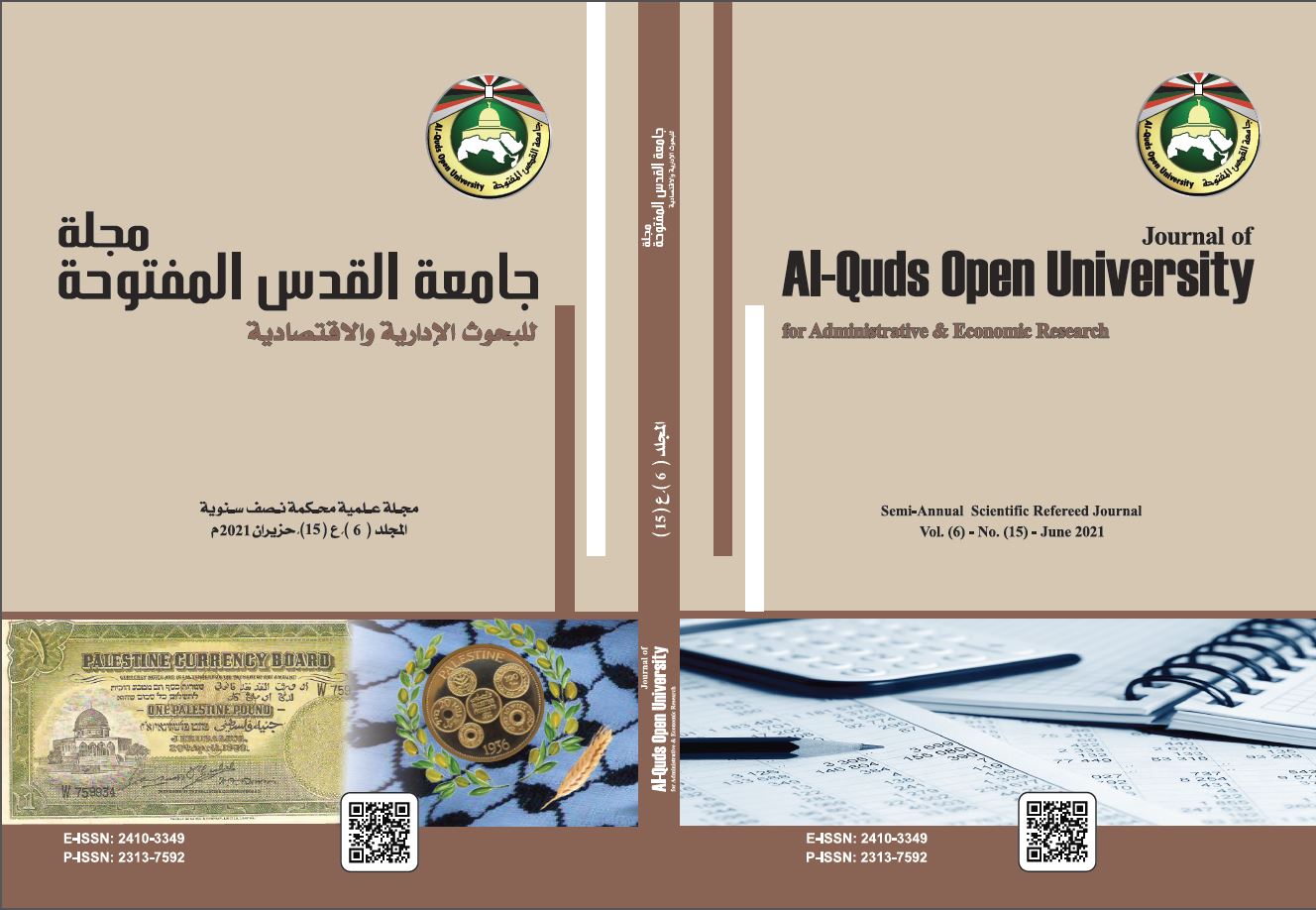Renewable Energies as an Alternative to Petroleum Dependency A Case Study of the Emirati and Norwegian Experience
DOI:
https://doi.org/10.33977/1760-006-015-009Keywords:
Petroleum dependency – Gross Domestic Product (GDP) - Renewable energy production and consumption - Conventional energy production and consumption.Abstract
The aim of this paper is borne in the research in two main points, firstly, the extent to which the Norwegian and Emirati economies depend on oil as each of the two countries has significant oil reserves. The second point is about showing the extent to which Norway and the Emirates seek to achieve energy diversification in favor of clean, environmentally friendly renewable energies. The results of the research show that Norway aims to make renewable energies a contributor to the economy and not an alternative, as oil extraction is still of interest by Norway, which seeks to build a cleaner relationship between nature and the economy. About 97٪ of the energy in Norway comes from hydropower since Norway occupies a special global position in the field of renewable energy.
As for the UAE, it is striving to abandon oil completely by 2050 and make renewable energy the total and final alternative. Despite the UAE’s reliance on oil revenues and its possession of large oil reserves worldwide, it seeks, and notably in recent years, to create a sustainable environment by increasing the reliance on clean energy and the application of green development programs. It has set a long-term goal of moving from a carbon-based economy to a sustainable green economy.
The results of the research became clear in the current strategies of the two countries and their forward-looking vision, as well as in the levels of production and consumption and the two countries› investments in traditional and renewable energies. The study recommended the necessity of developing renewable energies as they mix economic, social, and environmental interests.
References
المراجع بالعربية :
احمد بن محمد السياري (2015) نظرة عامة على اهم مصادر الطاقة الغير تقليدية.إدارة الأبحاث الاقتصادية مؤسسة النقد العربي السعودي. السعودية .
أمينو مخلفي. (2012-2013)الطاقات المتجددة كبديل لقطاع النفط. دراسة حالة لوحدة البحث التطبيقي في مجال الطاقة المتجددة جامعة قاصدي مرباح. ورقلة. الجزائر .
بن عوالي خالدية ( 2015-2016). استخدام العوائد النفطية: دراسة مقارنة بين تجربة الجزائر وتجربة النرويج . مــــــــــــذكــــــــرة للـحـصـول عـلـى شـهـادة المـاجـسـتـيـر فـي الـعـلـوم الاقـتـصـاديـة .تخصص: اقتصاد دولي .جــــــامـــــــعـــــــة وهـــــــــران 2 .الجزائر.
فريدة كافي(2016). الطاقات المتجددة بين تحديات الواقع ومأمول المستقبل:التجربة الألمانية نموذجاً . بحوث اقتصادية عربية العددان 74-75 ربيع صيف .لبنان .
فروحات حدة(2012) الطاقات المتجددة كمدخل لتحقيق التنمية المستدامة في الجزائر. مجلة الباحث ورقلة .العدد 11. الجزائر .
محمد مصطفى محمد الخياط (2014) تقرير الوضع العالمي. شبكـة سياسات الطاقة المتجددة للقرن الواحد والعشرين الطاقة المتجددة .
هاني عمارة :"الطاقة وعصر القوة " .دار غيذاء للنشر والتوزيع .الطبعة الاولى . الاردن .2012.
هشام حريز.(2014) .دور انتاج الطاقات المتجددة في اعادة هيكلة سوق الطاقة .مكتبة وفاء القانونية . الطبعة الاولى. الاسكندرية .
الوكالة الدولية للطاقة الذرية.الطاقة المتجددة. تم إسترجاعه في : (22/09/2019).على الرابط https://www.iaea.org.
سليمان الخطاف.( 2016) .مستقبل النفط في مزيج الطاقة العالمي. مجلة الاسواق العربية. تم إسترجاعه في : (07/10/2019).على الرابط: https://www.alarabiya.net/ .
البنك العالمي .(2018). أهداف الطاقة العالمية تتحقق ببطء .لكن المكاسب قوية في بعض البلدان مبشرة . تم إسترجاعه في : (22/09/2019).على الرابط: https://www.albankaldawli.org.
:Trading economics " صادرات النرويج النفطية . .تم إسترجاعه في : (14/06/2019).على الرابط: tradingeconomics.com
الاسواق العربية.(2015). كيف حمت النرويج اقتصادها من التأثيرات السلبية لقطاع النفط؟". . تم إسترجاعه في (11/10/2019).على الرابط: www.alarabiya.net .
.Trading economics إنتاج النفط الخام في النرويج . .تم إسترجاعه في : (14/09/2019).على الرابط :ar.tradingeconomics.com
العربي الجديد:(2017) تعرف على الدول السبع الأوائل في إنتاج الطاقة الكهرومائية. تم إسترجاعه في (11/10/2019). على الرابط: https://www.alarabiya.net/.
وكالة الغرب العربي للأنباء.(2019). الهيئة النرويجية للطاقة تحدد منطقة لتطوير مزارع الرياح البرية في البلاد، تم إسترجاعه في: (11-96-2019). على الرابط:mapecology.ma.
:Trading economics " انتاج الكهرباء في النرويج . تم إسترجاعه في : (14/09/2019). على الرابط: https://tradingeconomics.com/ .
سمير شطارة( 2017 ) التناضح : تقنية نروجية لتوليد الكهرباء . على الرابط: ww.aljazeera.net/news/miscellaneous/2009/11/25. تم إسترجاعه في (11/10/2019).
أرقام (2016) صور: كيف تمكنت النرويج من إطلاق مشاريع للطاقة المتجددة ذات شكل رائع . على الرابط: www.argaam.com/ar/article/articledetail/id/443985. تم إسترجاعه في (11/10/2019).
قناة العالم (2017 )سكاتك سولار" النرويجية بصدد بناء محطات طاقة شمسية في إيران" . تم إسترجاعه في (11/10/2019).على الرابطwww.alalamtv.netA7%D9%86
صحيفة الاتحاد (2019) مشروع توليد الكهرباء بطاقة الرياح بيت ألمانيا والنرويج. . تم إسترجاعه في:( 01/09/2019 ).
على الرابط: www.alittihad.ae/article/23554/2019/ .
البوابة الرسمية لحكومة دولة الامارات العربية المتحدة :" الطاقة . تم إسترجاعه في :(25/10/2019). على الرابط:
/government.ae/ar-AE/information-and-services/environment-and-ene.
المراجع باللغة الاجنبية :
ByJohn Twidell, Tony Weir ; Renewable Energy Resources ; Routledge Imprint ; Edition3rd Edition ; 2015, https://doi.org/10.4324/9781315766416
Knoema :" Émirats arabes unis - Génération nette totale d'électricité " ; Disponible sur le site :knoema.fr/atlas/٪c3٪89mirats-rabes nis/topics/٪c3٪89nergie/٪c3٪89lectricit٪c3٪a9 /Electricity-net-generation ; Date de vue :(18/09/2019).
Downloads
Published
How to Cite
Issue
Section
License
- The editorial board confirms its commitment to the intellectual property rights
- Researchers also have to commit to the intellectual property rights.
- The research copyrights and publication are owned by the Journal once the researcher is notified about the approval of the paper. The scientific materials published or approved for publishing in the Journal should not be republished unless a written acknowledgment is obtained by the Deanship of Scientific Research.
- Research papers should not be published or republished unless a written acknowledgement is obtained from the Deanship of Scientific Research.
- The researcher has the right to accredit the research to himself, and to place his name on all the copies, editions and volumes published.
- The author has the right to request the accreditation of the published papers to himself.













